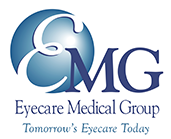
August is Healthy Aging Month. This month is an excellent opportunity to focus on learning new ways to maintain good eye health and protect your vision as you age.
Keep reading to learn five things that can help improve your eye health during Healthy Aging Month!
1. Importance of Regular Eye Exams
Regular eye exams are a critical component of maintaining good eye health as you age. These exams involve a comprehensive evaluation of your eyes and vision by an experienced eye doctor.
Regular eye exams are essential for the following reasons:
- Early detection of eye conditions
- Monitoring Changes to your vision
- Updating your prescription
- Overall health assessment
The frequency of eye exams may vary depending on factors such as age, existing eye conditions, and overall health. Generally, adults should have a comprehensive eye exam at least every two years.
However, those with existing eye conditions or other health concerns might need more frequent exams. It’s important to note that even if you have good vision and no noticeable issues, routine eye exams are still recommended.
2. Nutrition for Eye Health
Proper nutrition is essential for maintaining good eye health as you age. Specific nutrients play a crucial role in supporting your eyes’ function and reducing the risk of age-related eye conditions vitamins A, C, E, omega-3 fatty acids, and zinc.
A balanced diet, including various fruits, vegetables, whole grains, lean proteins, and healthy fats, provides the necessary nutrients for optimal eye health. Antioxidants in these foods reduce the risk of oxidative damage, inflammation, and eye conditions.
While a healthy diet is beneficial, it complements other practices like regular eye exams and proper eye care.
3. Digital Eye Strain
Digital eye strain, also known as computer vision syndrome, refers to the discomfort and potential vision problems that can arise from prolonged use of digital devices like computers, smartphones, and tablets. Spending long periods staring at digital screens can cause eye strain, headaches, dry eyes, and blurred vision.
The eyes work harder when looking at screens due to factors like blue light emission and the need to constantly refocus. To reduce digital eye strain, follow the 20-20-20 rule. Every 20 minutes, take a 20-second break and focus on something at least 20 feet away.
This brief pause gives your eyes a chance to relax. By being aware of digital eye strain and taking proactive steps to alleviate its effects, you can reduce discomfort and maintain better eye health during periods of prolonged screen use.
4. UV Protection
Safeguarding your eyes from ultraviolet (UV) rays is vital. Prolonged UV exposure raises the risk of cataracts, macular degeneration, and other eye conditions.
Wearing sunglasses that block 100% of UVA and UVB rays, in addition to wide-brimmed hats, provides effective defense. Minimize sun exposure, especially during peak hours, to mitigate the potential damage.
Prioritizing UV protection aids in preventing various eye conditions and maintaining good vision for the future.
5. Dry Eye Syndrome
As you age, understanding dry eye syndrome is crucial. This condition arises from inadequate tear production or poor tear quality, causing discomfort, redness, and vision fluctuations.
Age, medications, and environmental factors contribute to its development. Treatments include artificial tears, lifestyle changes like staying hydrated, using humidifiers, and prescription medications for severe cases.
Proper knowledge and management alleviate symptoms, enhancing overall eye comfort and health.
In the journey of healthy aging, your eyes play a pivotal role in maintaining your overall well-being and quality of life. Through awareness and proactive action, you can embrace the gift of healthy aging for both yourself and your eyes.
Is it time for you to have an eye exam? Schedule an appointment at Eyecare Medical Group in Portland, ME, today!





